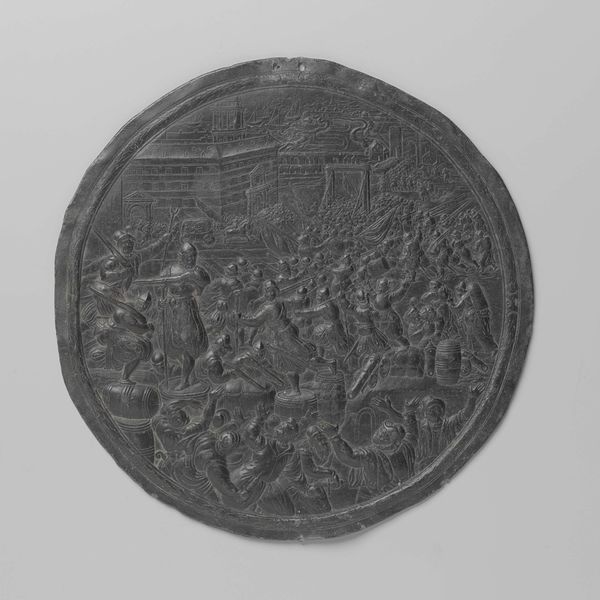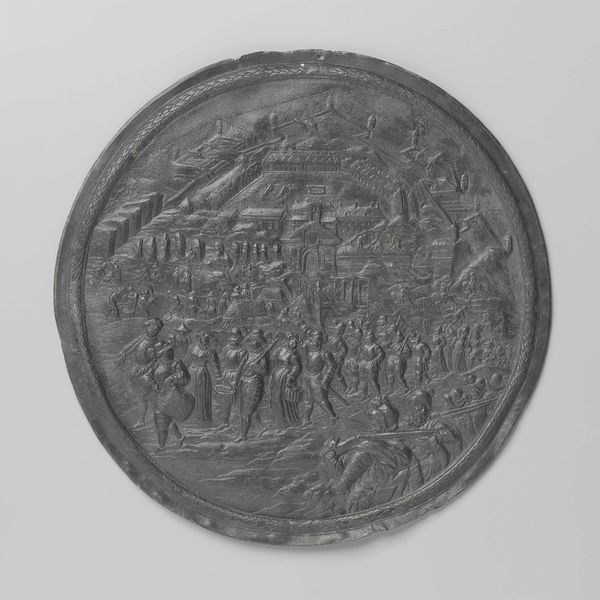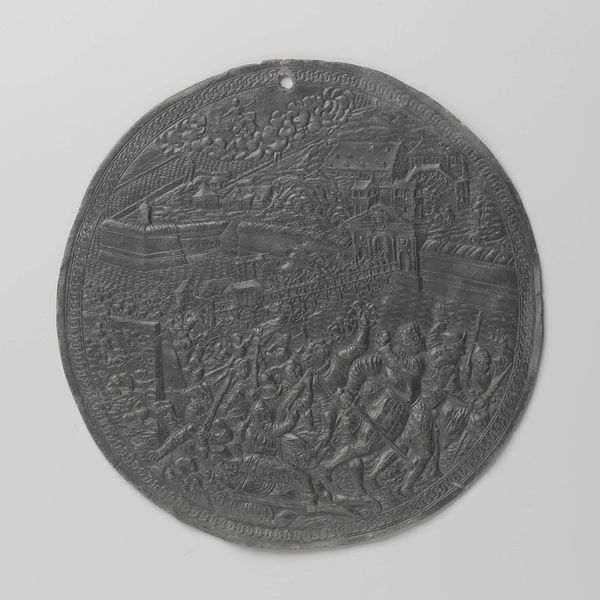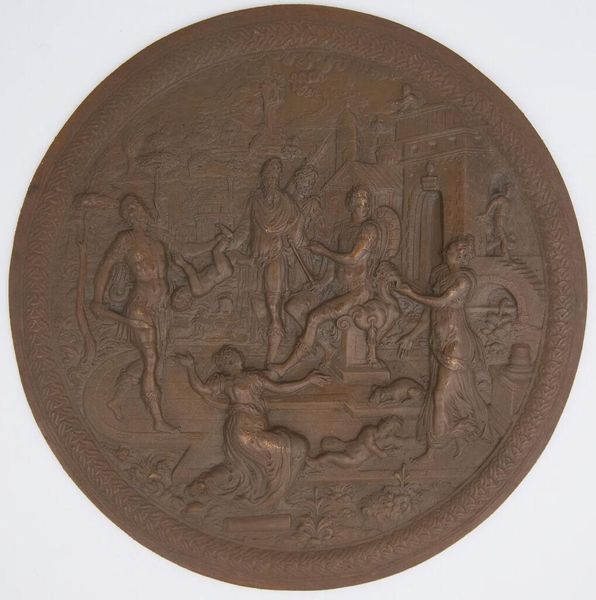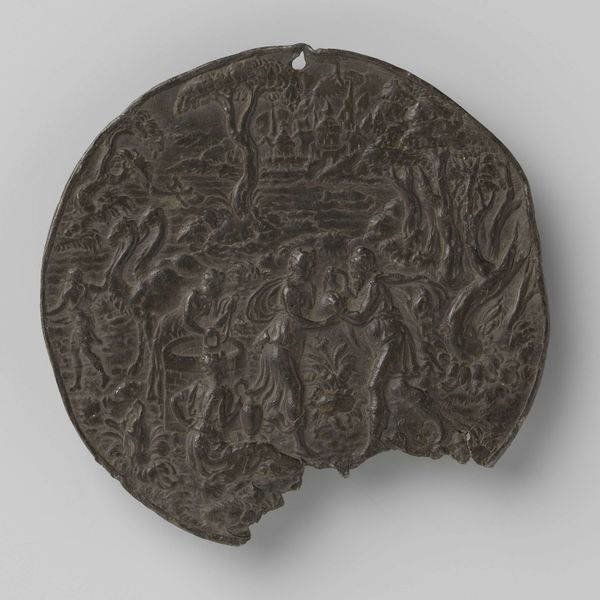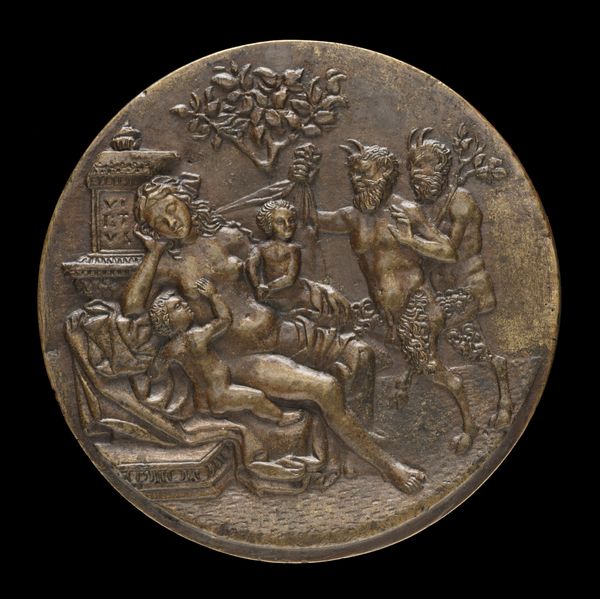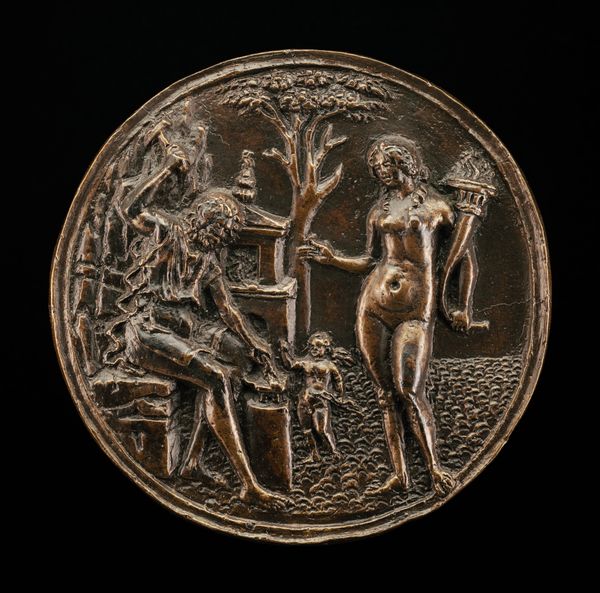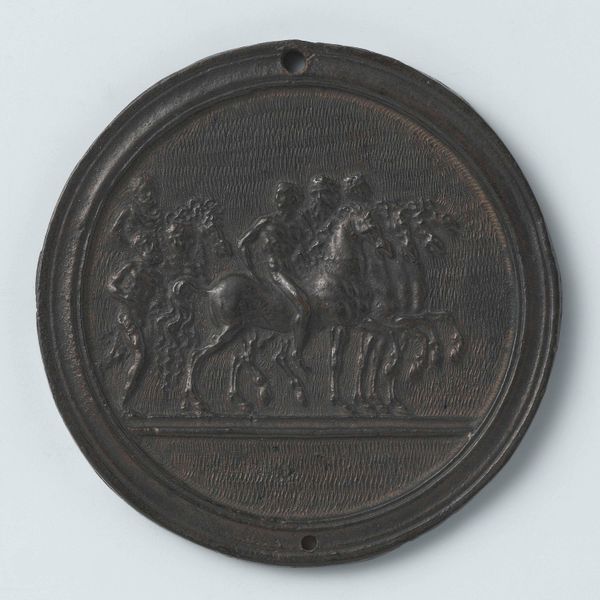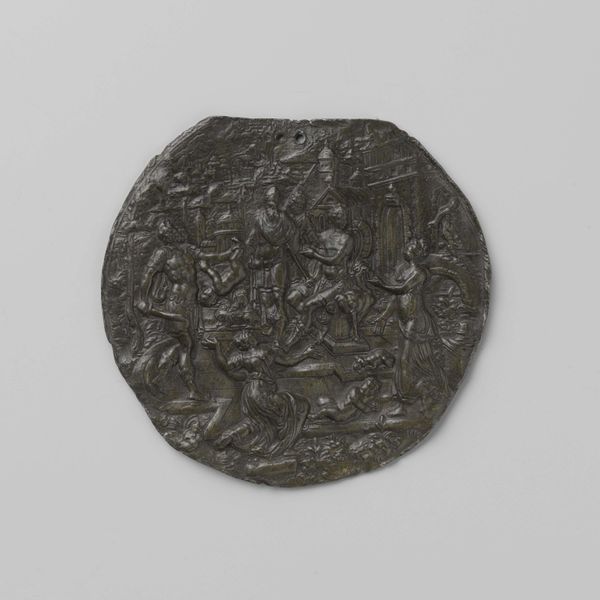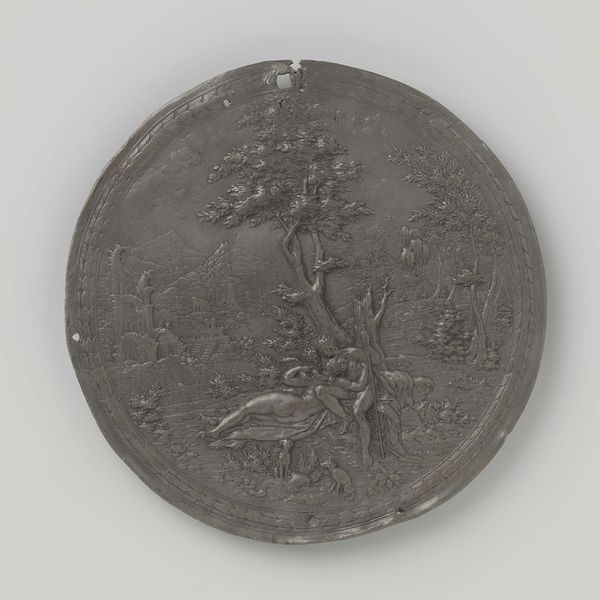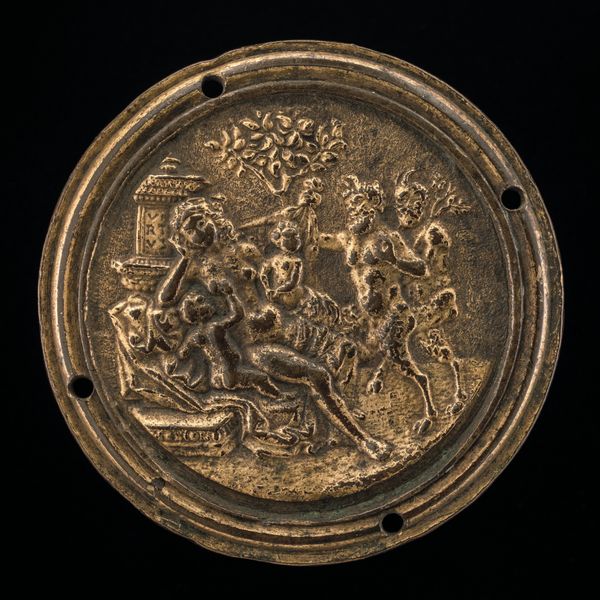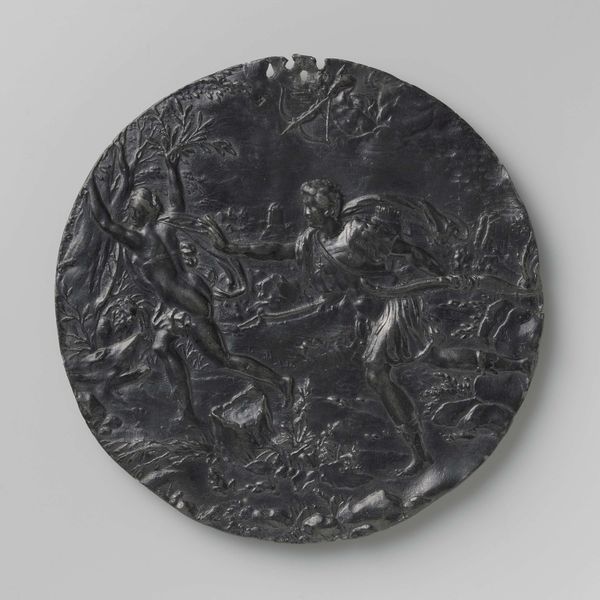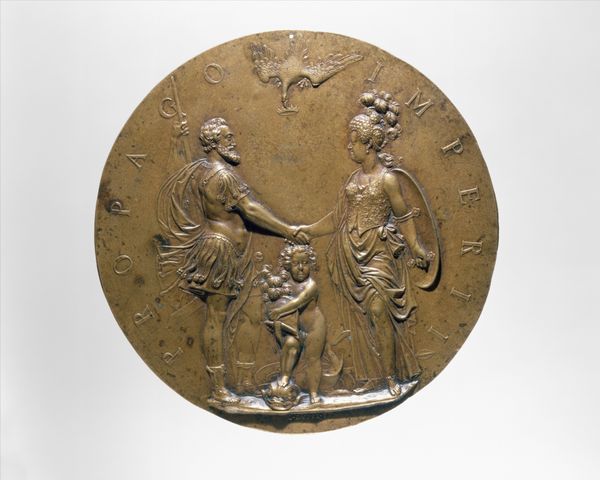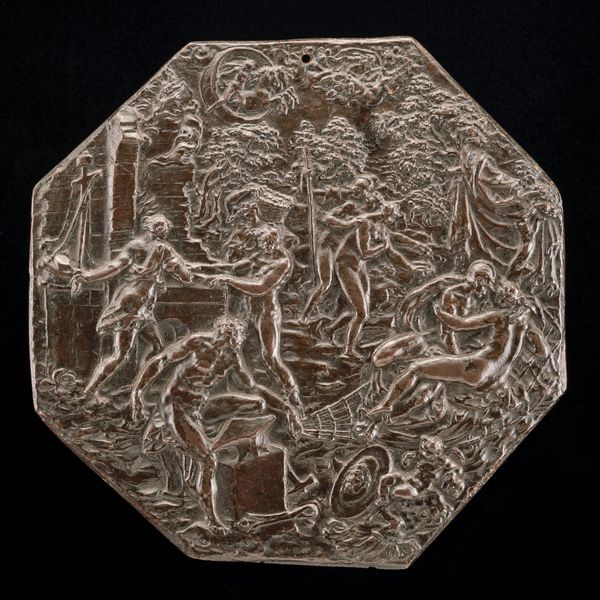
relief, bronze, sculpture
#
narrative-art
#
sculpture
#
relief
#
classical-realism
#
bronze
#
figuration
#
female-nude
#
sculpture
#
decorative-art
#
italian-renaissance
#
male-nude
Dimensions: Diameter: 9 3/4 in. (24.8 cm)
Copyright: Public Domain
Curator: The first impression I get is drama. All this powerful muscle and heaving waves rendered in this gleaming, almost tactile bronze relief. Editor: Indeed, this striking bronze relief, titled "Triumph of Neptune," was created in northern Italy sometime between 1510 and 1530. We believe the artist to be Alvise of Padua. It is currently held in the collection of the Metropolitan Museum of Art. Curator: Bronze as a material always evokes ideas of permanence and power. Given the classical subject matter, it feels like a deliberate choice to connect Neptune's reign to that long history. But there's also a swagger here – the figures are very assertive. Editor: The Italian Renaissance was steeped in rediscovering classical forms, using them to justify ruling power in terms of gender, and political identity. Neptune, of course, represents masculine control of the sea. Considering the period, what commentary can we draw regarding colonialism and control? The patriarchy in this triumph appears quite literal and quite intentional. Curator: I agree, especially given the period in which this relief was crafted. Let's consider, though, the process and significance of bronze casting itself during this time. Access to metalworking shaped much of the sociopolitical landscape. Crafting a relief like this demonstrates economic influence and displays knowledge of material science. I think that's worth pointing out here. Editor: Yes, but how often are women portrayed in these triumphal processions? Seldom. This work highlights masculine dominance and the social hierarchy inherent in mythological narratives, particularly in their Renaissance re-imagining. While this piece clearly embodies an elevated, craft, the ideology that underpins its imagery perpetuates societal issues. Curator: Perhaps examining the process as part of an elaborate exercise in self-mythologizing provides more insights into patriarchy's underpinnings during that period. Thank you for your insight! Editor: And thank you! Recognizing this continuum provides essential awareness for today’s discourse.
Comments
No comments
Be the first to comment and join the conversation on the ultimate creative platform.
